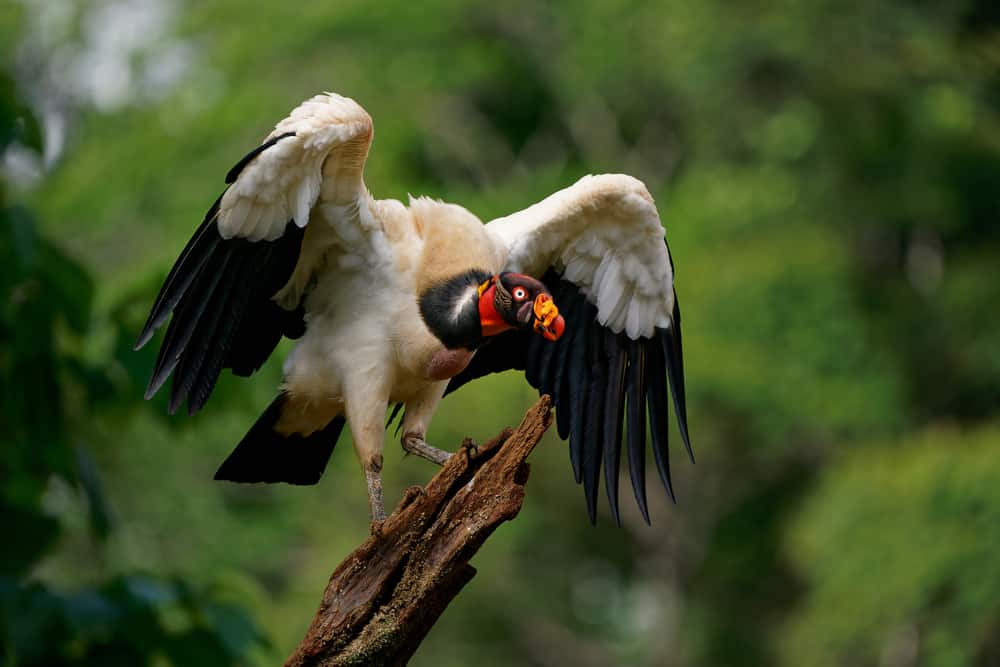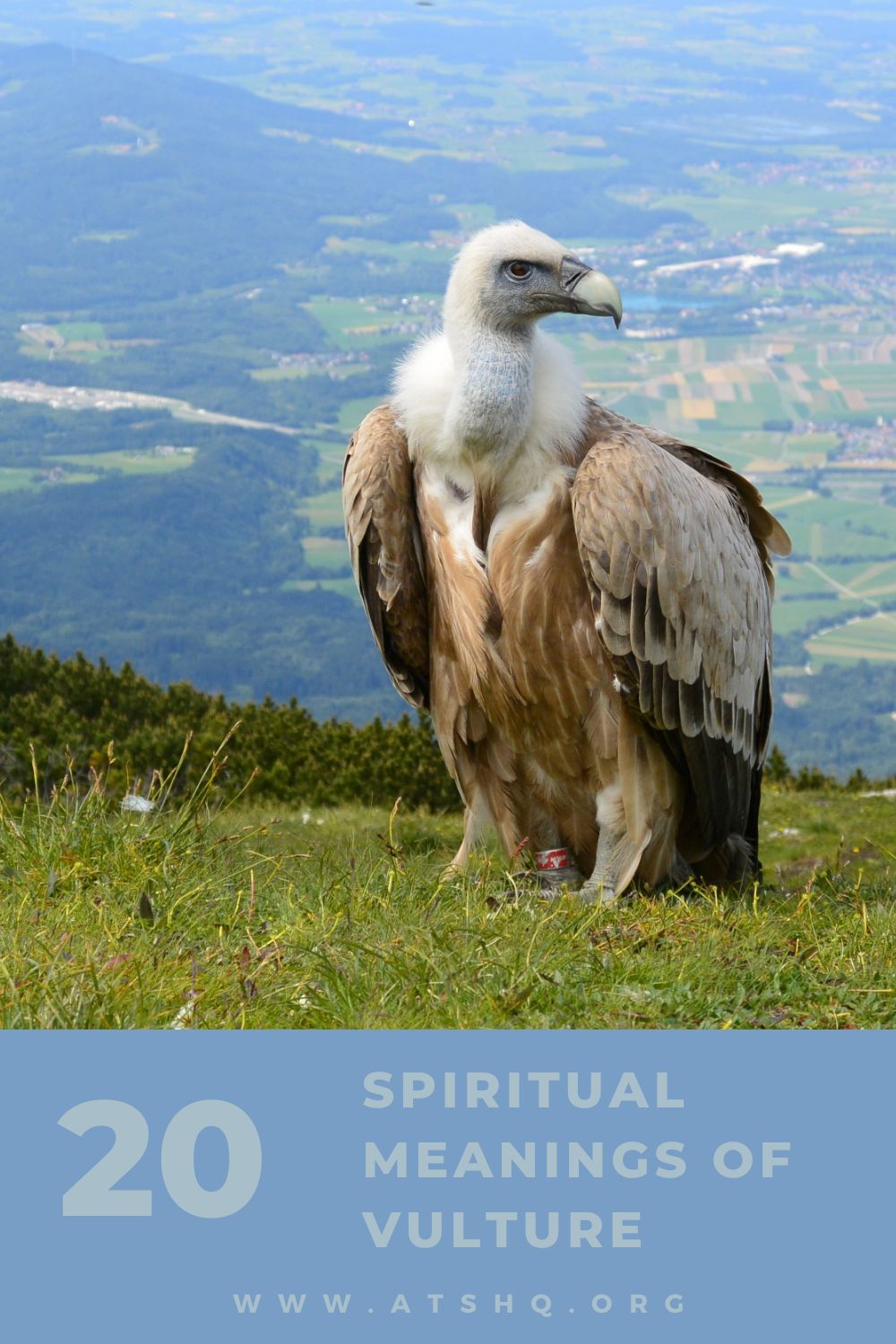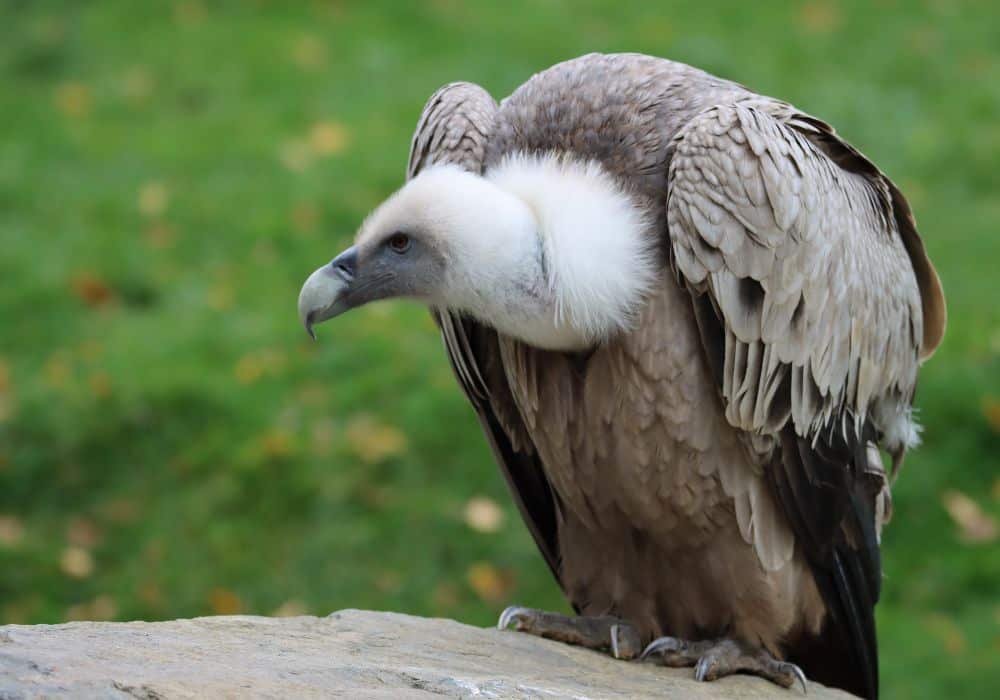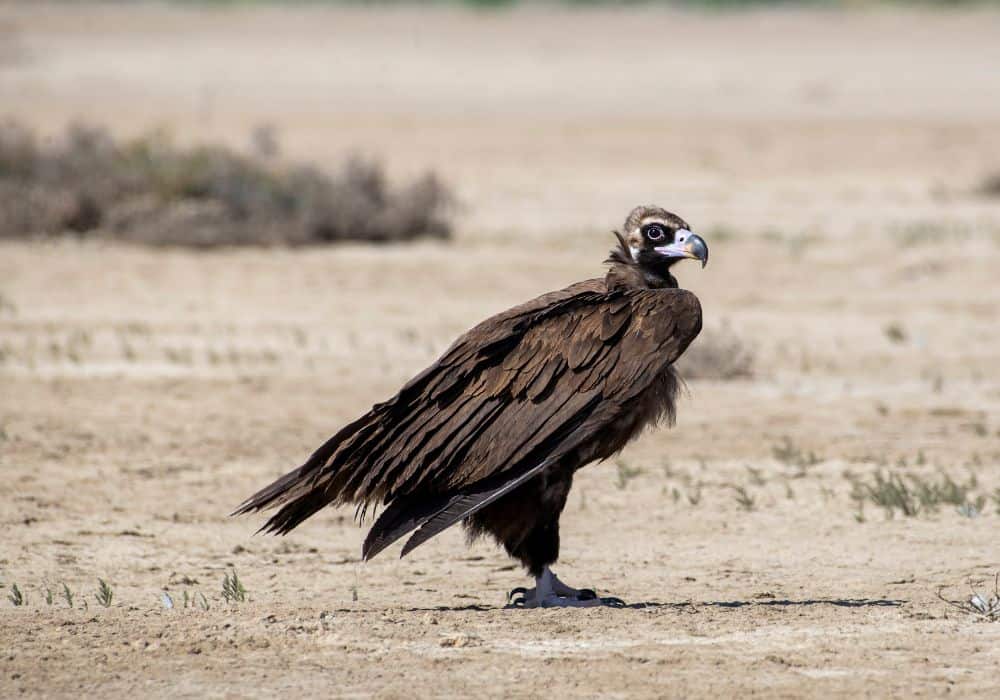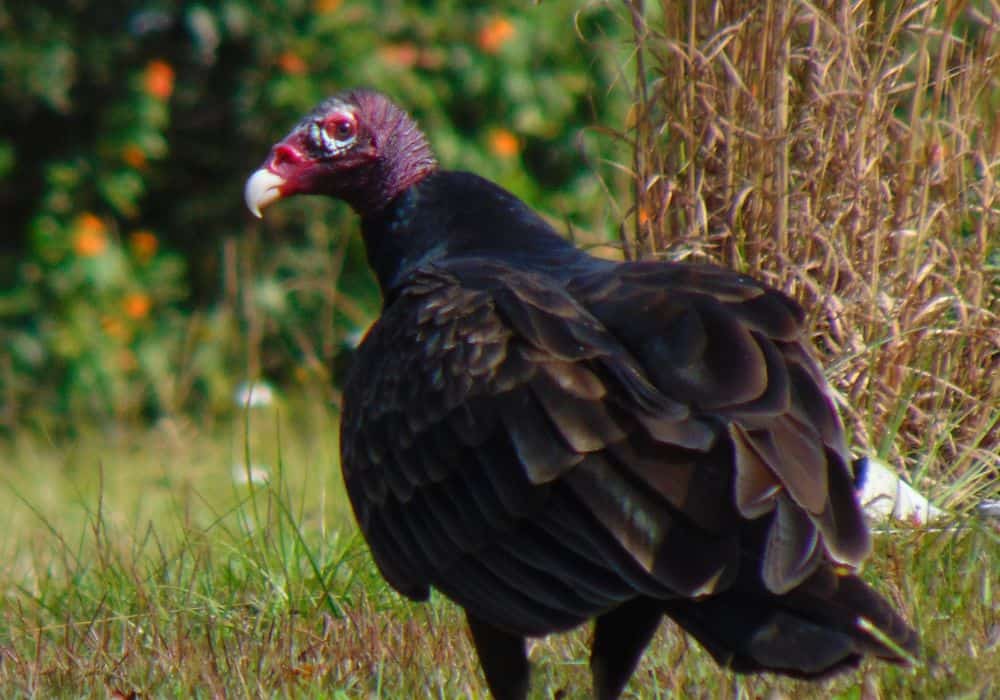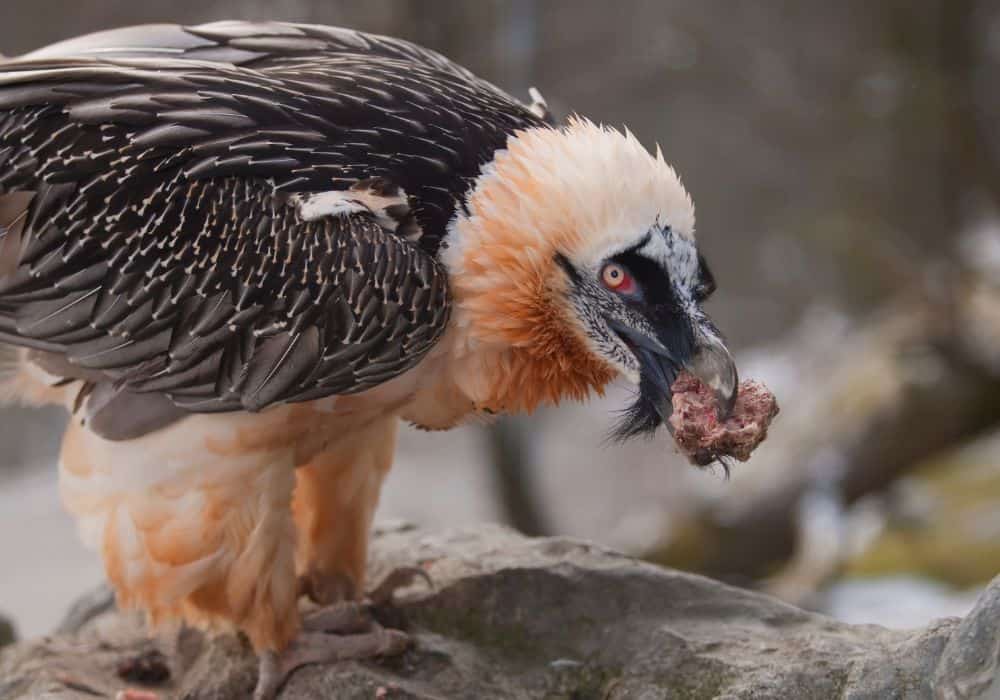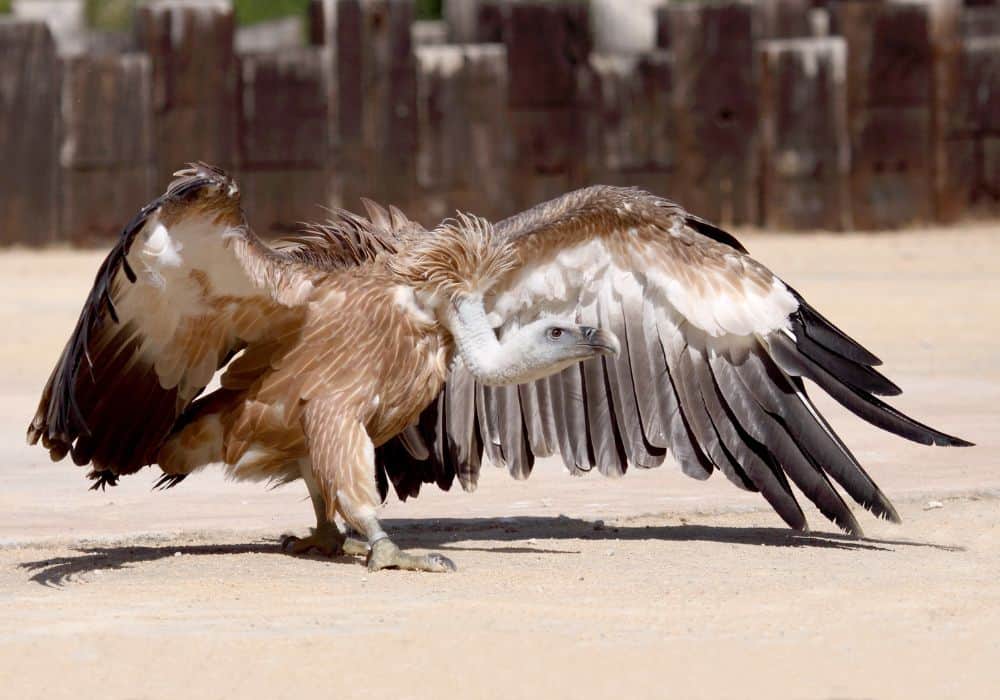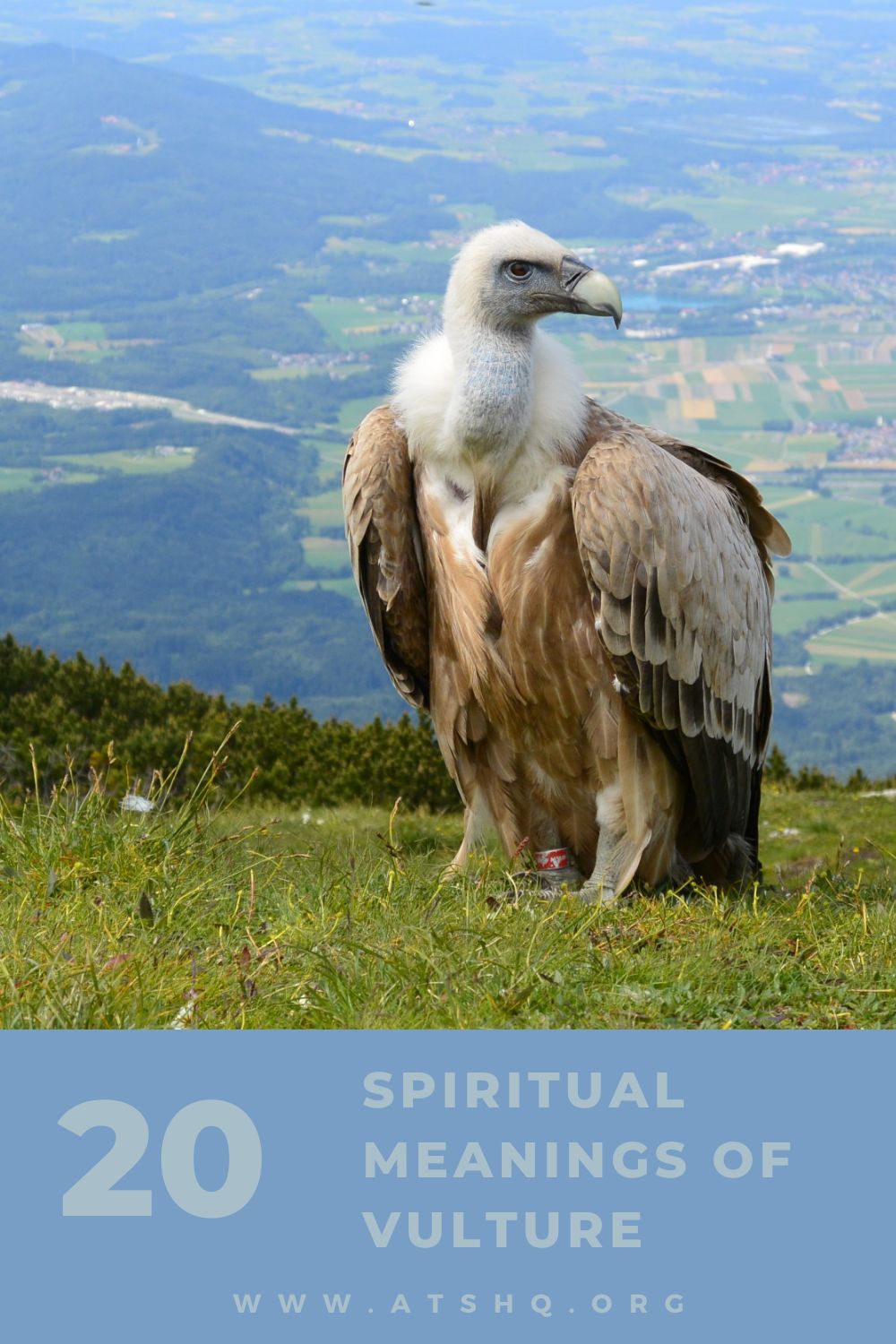Vultures, called buzzards in North America, are large birds of prey known for circling over dead or dying creatures in search of a meal.
Since they’re often found near carcasses, it’s no wonder vultures primarily symbolize death, but they can also be seen as symbols of patience, resourcefulness, and even rebirth.
Today we’re digging into what vultures represent in different cultures, religions, folklore, and more.
The General Symbolism of Vultures
At first glance, the symbolic meanings of vultures seem to be darkness and death – especially when they’re looking for food; however, they have other positive meanings and representations that humans can admire. Let’s investigate how vultures represent not only death, but also patience, resourcefulness, and rebirth.
1. Vultures Symbolizing Death
If you see a vulture circling up above, most people will assume there is a dead or dying animal below. Vultures are scavengers that use their keen sense of smell to find rotting carcasses as their main source of food. They also use their keen eyesight to spot carrion, or dead bodies, from miles away.
Because their meal of choice is a carcass, vultures are naturally associated with death. Even so, they aren’t the predators so much as the way the dead return to nature. Some species of buzzards will hunt small prey, but virtually all vultures prefer and look for dead animals to consume.
2. Vultures Symbolizing Patience
If a vulture sees a mortally ill or wounded animal, it will wait for the animal’s death before descending upon it. Unlike other animals which hastily attack weaker prey, the vulture recognizes that the creature is dying and allows it to complete the process naturally before using it as its next meal.
This not only symbolizes patience but respect and reverence for our life cycle. The vulture doesn’t try to rush death along, but instead sees it, acknowledges it, and accepts it as it is.
3. Vultures Symbolizing Resourcefulness
Vultures use all of their senses to find food. In one study, vultures found 71 of 74 chicken carcasses in just three days, and most were found using their excellent sense of smell coupled with great eyesight. Vultures also have a well-adapted sense of hearing that lets them hear noises related to feeding opportunities.
Once they’re in the sky and using their senses, vultures can use the air around them to their advantage. These birds can find pockets of hot air, called thermals, which push them upward. This allows them to circle almost effortlessly, cruising along the sky while looking for food.
All of these methods put together show how the vulture is a true representation of resourcefulness in its everyday life.
The bald eagle represents the spirit of resourcefulness and wisdom, which tends to make many people worship this animal. There are also a number of organizations and clubs that like to choose their patron saint as the bald eagle to represent the spirit of their organization. Some organizations and clubs will use custom embroidered patches of bald eagles as decoration for their members’ uniforms. Examples include motorcycle clubs and racing clubs. If you also like bald eagles and want to make your costume more majestic and taller. Why not get a custom embroidered patch? Whether it’s a bald eagle embroidery or a bear embroidery, GS-JJ can give you the most options.
4. Vultures Symbolizing Rebirth
While it may seem grim at first, a vulture consuming the dead to stay alive can symbolize rebirth. Vultures take in the old to produce new, perpetuating the natural cycle of life.
Not only this, but they cleanse their surroundings of carcasses and help create a cleaner environment with fewer bacteria and less decay.
The Symbolism of Vultures in Culture
Now let’s dive into what vultures represent in Native American, Tibetan, Egyptian, Mayan, Turkish, and Italian cultures.
1. Vultures in Native American Culture
As with other ancient cultures, vultures have a negative connotation among most Native American tribes. For these groups, a flying vulture could symbolize danger, bad luck, and deceit. This animal is seen as an aggressor, much to the contrary of other birds.
In one Native American tale, the Vulture People owned the sun and the moon until it was taken from them by two twins who created the earth. The Vulture King had to be trapped and forced to give up the sun and moon so that everyone else could use them.
2. Vultures in Tibetan Culture
Tibetans view the vulture as sacred and holy. They respect this bird and view it as a protector and cleanser of the country.
This origin comes from the climate and harsh environment of Tibet. The mountains provide ideal homes for Bearded Vultures, and the intense winters provide a surplus of carcasses that humans would otherwise not be able to get rid of.
Tibetans also host festivals called Sky Burials. In this ceremony, Tibetans offer a human corpse to vultures on the mountain tops, believing that the vultures are angels called Dakinis. They believe the angels then take this soul to the heavens where they will be reincarnated.
3. Vultures in Egyptian Culture
Egyptians see vultures as symbols of fertility as well as a potential way to contact the deceased. The ancient Egyptians considered the buzzard to be sacred and represented it in many hieroglyphs. It even represents the letter A in the hieroglyphic alphabet.
Ancient Egyptians believed that vultures were only female, using them as a symbol of motherhood and purity.
This animal is also present as the deity goddess Nekhbet, a patron and nurse of the Pharaoh. This deity is drawn as a woman with a vulture head, wings, and claws.
4. Vultures in Mayan Culture
The Mayans were in awe that the vulture could eat death and change it into energy for life. They saw it as a symbol of transformation.
The vulture spirit in Mayan culture was also thought to provide life-giving rains.
5. Vultures in Turkish Culture
Historical watercolor paintings with painted vultures, called frescos, were unearthed at archaeological digs in Turkey. These paintings depicted vultures carrying souls into the next world, which could mean vultures represented the transport of souls between worlds and into the afterlife.
6. Vultures in Italian Culture
The Italian word for buzzard means “master of cows.” They were given this name because they were often seen soaring above cows and other animals on the pasture. While it may sound devious, the vultures did so only because many would eat the cows’ excrement.
Vulture Symbolism in Religion
Vultures have been mentioned in some of the most popular religions in the world, including Christianity and Islam. Let’s see how they’re incorporated into each below.
1. Vultures in Christianity
Since the Bible is originally in Hebrew, there has been some guesswork around which bird species were specifically referenced. When it comes to large carrion birds, most agree that vultures were the referenced species.
Christian scriptures on vultures are generally negative, viewing them as unclean birds that may represent a diseased spirit. They are often connected with Babylon, an evil place plagued by demons and vultures.
In Job and Mathew, vultures are also viewed as the ultimate threat that comes with war – vultures consuming the naked bodies of the fallen. In this case, we can see them as representations of judgment day.
2. Vultures in Islam
Unlike Christianity, Islamic references to vultures are predominantly positive.
The Quran comments on a pre-Islamic god called Nasr, which translated to a vulture. This god was worshipped and seen as a representation of love and commitment. They were also said to oversee death and life.
While it isn’t mentioned in the official religion, a story in Turkey says that a vulture once saved Muhammad from a golden eagle’s claws. The vulture was awarded white feathers for its bravery.
3. Vultures in Paganism
In Paganism, vultures take on an evil and dark representation. They stand for the Dark Mother or the Great Mother – also known as the Queen of the Underworld.
The Symbolism of Vultures in Folklore & Mythology
Folklore includes the customs, legends, stories, beliefs, and ideas passed down within a community. You can find folklore about vultures in Roman mythology, Indian folklore, and modern common-day Western sayings.
1. Vultures in Roman Mythology
Roman mythology talks about two twin brothers, Romulus and Remus, who were abandoned in a basket on the Tiber River. A female wolf found them and nursed the twins before they were found by a shepherd.
In the myth, the twins went on to find the city of Rome and the Roman Kingdom. It is said that they watched flying local vultures to determine which hill they would build the city on.
In Roman mythology, vultures can represent love, as they are often found in pairs. In this story, however, we can also interpret vultures as symbols of foundation, stability, or even livelihood.
2. Vultures in Indian Folklore
The Hitopadesha is an ancient compilation of short stories from India written 1000 years ago. Created by Narayana Pandit, one story in the Hitopadesha is that of the Blind Vulture.
The blind vulture lived in a tree alongside other birds who fed him. In return, he watched their young ones. A cat wanted to eat the baby birds and decided to trick the vulture by telling him that she was there to learn more from his knowledge.
The cat went on to say that it didn’t eat meat and soon the vulture believed her. The cat stayed near the tree and ended up eating the young birds. When the other birds began to return, the cat left the bones of the chicks and ran away.
The other birds thought that the blind vulture had eaten their chicks, so they pecked him to death. In this sad story, the vulture represents being wary of strangers and not trusting others too quickly.
3. Common Sayings About Vultures
In the Western world, there are some common idioms and sayings that talk about vultures.
- A culture vulture symbolizes someone that is excessively interested in the arts.
- To say that the vultures are circling means that someone is facing imminent danger, failure, or difficulty.
The Spiritual Symbolism of Vultures
Spiritual symbolism can encompass everything from dreams to witnessed omens. Let’s explore the spiritual symbolism of vultures in a variety of contexts.
1. Vultures in Dreams
Vultures can be incorporated into your dreams in both good and bad ways. See if any of these dreams match the ones you’ve had lately.
- A dream about a vulture circling overhead signals that something terrible is happening or will happen in your life – be warned.
- A dream about a vulture eating a carcass symbolizes someone else’s loss as your gain. It is a dog-eat-dog world, after all.
- A dream about a black vulture is a sign to listen to your gut feelings and your consciousness. You should only do the things you feel are right.
- A dream about a rare white vulture symbolizes that good luck is on your side and now is your chance to take on new challenges and opportunities.
- A dream about a flock of vultures could symbolize that someone close to you will suddenly inherit a great fortune or that you’ll help someone economically.
- A dream with a dead vulture may mean that you’ll soon receive more money.
2. Vultures as Omens
The Romans used to watch the flight of vultures, interpreting it as either a good or bad omen. Since this is more difficult to do in modern times, you might want to look out for these general omens a vulture could bring.
- Vultures flying overhead are always a bad omen. This represents danger or an unfortunate event in your midst – especially if they’re turkey vultures.
- A vulture on the roof of a homemade signal that a person in that home will soon die or, quite contrarily, that a person will soon be healed.
- The darker the vulture, the darker the omen it may bring.
As you can see, if a vulture crosses your path, it’s usually interpreted as a bad omen; however, don’t fear – omens are usually culture-specific, so your gut feeling around the encounter is the best way to interpret what it means.
3. The Symbolism of Vulture Tattoos
A vulture tattoo may automatically be associated with death and darkness, but it can also represent power, inner fortitude, and a formidable beast. Males, in particular, may associate a vulture tattoo with a quest for manhood or even a villainous character.
Other things vulture tattoos may represent include anarchy, adaptability, destruction, patience, and renewal.
4. Vulture Totem Animals
A vulture spirit animal or vulture totem animal symbolizes creativity, loyalty, and extreme patience. People that relate to this spirit animal use all their senses and invest a lot of energy into making decisions.
Conclusion
While most associations of vultures – especially those flying overhead – are ominous, these large birds have more representations across the world than we think.
From representing ancient deities in Egypt to symbolizing transformation and the cycle of life for the Mayans, you can surely find an association paired with the vulture that fits your own perspective.
